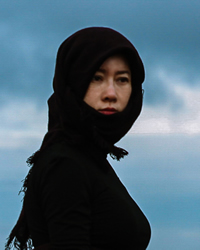Qiang, Mianchi in China

Photo Source:
Copyrighted © 2026
Ealge XiaoYing - Shutterstock All rights reserved. Used with permission |
Send Joshua Project a map of this people group.
|
| People Name: | Qiang, Mianchi |
| Country: | China |
| 10/40 Window: | Yes |
| Population: | 26,000 |
| World Population: | 26,000 |
| Primary Language: | Qiang, Southern |
| Primary Religion: | Ethnic Religions |
| Christian Adherents: | 1.00 % |
| Evangelicals: | 0.74 % |
| Scripture: | Portions |
| Ministry Resources: | No |
| Jesus Film: | Yes |
| Audio Recordings: | Yes |
| People Cluster: | Tibeto-Burman, other |
| Affinity Bloc: | Tibetan-Himalayan Peoples |
| Progress Level: |
|
Introduction / History
Records inscribed on bones and tortoise shells dating from the Shang Dynasty (1700-1100 BC) indicate that the ancestors of the Qiang were one of the first people recorded in Chinese history. "One branch of these peoples gradually moved to the upper reaches of the Min River and subsequently became today's Qiang."
The name Qiang, which means "herdsmen," has for centuries been a generic description for a large number of nomadic tribes along China's western border with Tibet. Mianchi is a distinct language that cannot be understood by the members of any other Qiang group in Sichuan.
Mianchi Qiang is one of the 9 or 10 Qiangic languages spoken in Sichuan Province. At one time in history there were 62 Qiang tribes, but many of these have since assimilated into larger peoples or have simply vanished because of disease, warfare, and famine.
What Are Their Lives Like?
Because of invading armies and bandits in the past, many Qiang villages built stone watchtowers and forts—often 13 or 14 stories high—which are still visible from mountain passes. The two-story stone houses of the Qiang, called qionglong, are flat-roofed and resemble a watchtower. Builders construct them without the use of plans or measuring tools, depending entirely on their memory.
What Are Their Beliefs?
In addition to worshiping a multitude of deities, the ancestors of the Mianchi Qiang are highly honored. They observe strict protocol in the home so that the spirits of the ancestors are not offended. "Placed on the upper part of the support are memorial tablets of their ancestors. The cauldron support is under a taboo and the place near it is where the whole family eat their meals, get together, sing and dance on festive occasions and offer sacrifices to their ancestors."
There are about 150 Christians among the Mianchi Qiang, some of whom belong to the Quakers (Society of Friends). Thomas Torrance Jr. met with the Qiang believers in 1994. He reported, "There is a whole cluster of Qiang Christians here in Wenchuan." Many Qiang believers have moved to Wenchuan because of persecution and discrimination in their home areas. The believers in Wenchuan intend their church "to be the center for the spread of the gospel and the Christian church throughout the whole Aba region."
What Are Their Needs?
There is a need for the few groups of believers among them to grow and to start new churches.
Prayer Points
Pray that they would see that their ancestors have no power to help them or watch over them, in contrast to God Almighty, who is alive and powerful.
Pray that God's desire that none would perish but that all would come to repentance would be a reality in their lives.
Pray that a Disciple Making Movement among them would result in mature believers and the start of new churches.
Pray for the light of the love of God and the gospel to shine brilliantly among them.